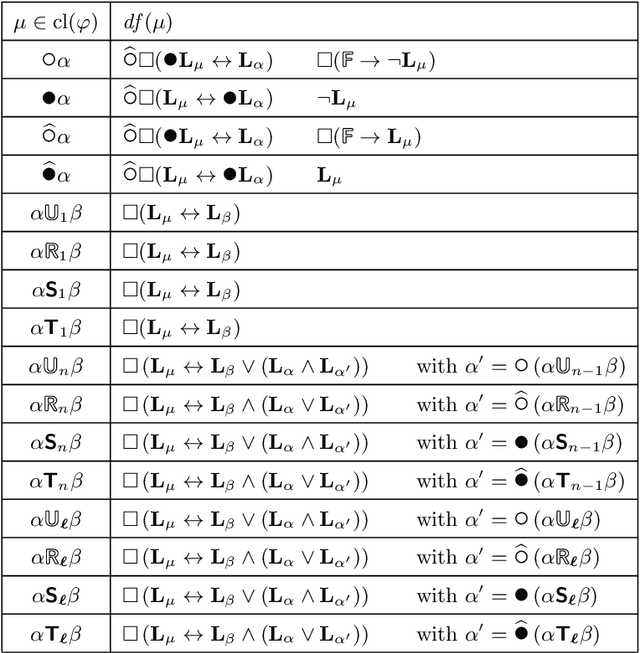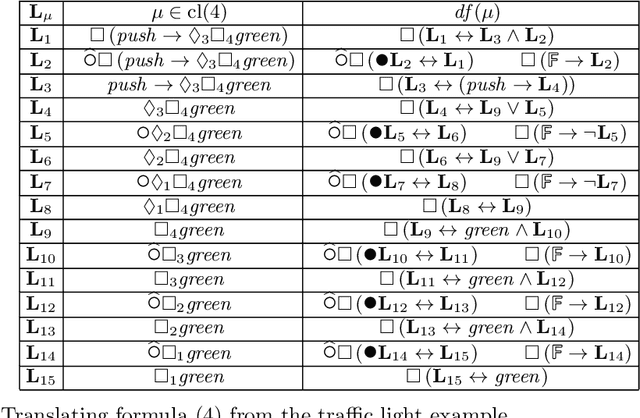Martin Dieguez
Temporal Answer Set Programming
Sep 14, 2020



Abstract:We present an overview on Temporal Logic Programming under the perspective of its application for Knowledge Representation and declarative problem solving. Such programs are the result of combining usual rules with temporal modal operators, as in Linear-time Temporal Logic (LTL). We focus on recent results of the non-monotonic formalism called Temporal Equilibrium Logic (TEL) that is defined for the full syntax of LTL, but performs a model selection criterion based on Equilibrium Logic, a well known logical characterization of Answer Set Programming (ASP). We obtain a proper extension of the stable models semantics for the general case of arbitrary temporal formulas. We recall the basic definitions for TEL and its monotonic basis, the temporal logic of Here-and-There (THT), and study the differences between infinite and finite traces. We also provide other useful results, such as the translation into other formalisms like Quantified Equilibrium Logic or Second-order LTL, and some techniques for computing temporal stable models based on automata. In a second part, we focus on practical aspects, defining a syntactic fragment called temporal logic programs closer to ASP, and explain how this has been exploited in the construction of the solver TELINGO.
Towards Metric Temporal Answer Set Programming
Aug 08, 2020

Abstract:We elaborate upon the theoretical foundations of a metric temporal extension of Answer Set Programming. In analogy to previous extensions of ASP with constructs from Linear Temporal and Dynamic Logic, we accomplish this in the setting of the logic of Here-and-There and its non-monotonic extension, called Equilibrium Logic. More precisely, we develop our logic on the same semantic underpinnings as its predecessors and thus use a simple time domain of bounded time steps. This allows us to compare all variants in a uniform framework and ultimately combine them in a common implementation.
 Add to Chrome
Add to Chrome Add to Firefox
Add to Firefox Add to Edge
Add to Edge